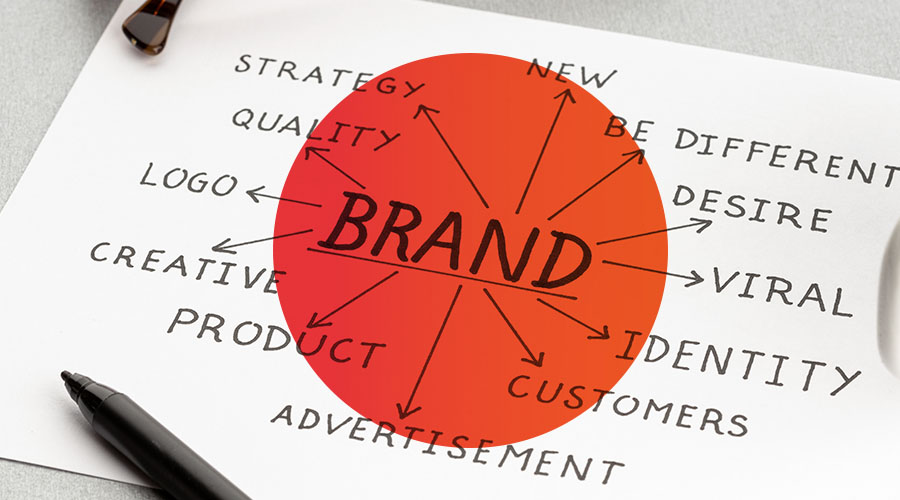Last week, I had the opportunity to travel to one of my favorite events: our annual AMIN Integrated Conference where agency creatives, media folks and user-centered designers and strategists get together to talk about where our industry is headed.
For those who may not know, AMIN – or, the Advertising & Marketing Independent Network – is a global group of 50+ independent agencies, just like Simantel, that regularly collaborate on both our agency businesses and (where it makes sense) our client work, as well.
Through a series of annual conferences, peer groups and technology platforms, we share a lot with each other (confidentially, of course). And, we learn a lot about how to be successful in a highly-competitive industry.
The theme for this year’s conference was “Blowing Up the Paradigm.” In our industry, shifting our priorities, staffing, services lines and technology platforms is an ongoing evolution. In fact, industry experts say that if agencies aren’t reinventing themselves at least annually (sometimes quarterly), we’re probably not keeping up and adding value for our clients.
So, I wanted to share three of the speakers that made me rethink (or at least reconsider) some of the ways we’re doing things right now. Sometimes it just takes a little getting away to get a little perspective.
-
Speaker: Bob Hoffman, Type A Group, San Francisco, CA
Topic: Delusions – Long-time AMIN agency leader and well-known marketing-guru, Bob Hoffman kicked off the keynote luncheon, and he challenged us. After sharing his multitude of credentials, he spoke transparently by saying: “Truth is, I don’t know much – and to be honest, neither do you.” In a way, he was asking us to get real with our marketing prowess. He suggested that it’s fun to pretend we’re all marketing experts, but what do we really know? Bob has a background in science, so naturally his advice to us was to “get the facts” and “don’t believe what you hear just because the experts say it.” Through a series of thought-provoking statistics, Bob began to challenge modern day marketing beliefs. Specifically, he called out three “delusions,” as he called them, and challenged us to get out of our marketing bubble – and think like real people. Some thought-provoking themes included:
- The Digital Delusion. Bob contends it’s easy to believe (and any modern-day marketer would say) that digital “targeted marketing” is more effective in efficiently reaching a target audience than traditional media buying. But Bob asks, how do we really know that the era of mass-media advertising is really dead? By using more traditional forms of media, reaching ALL the users in your target, Bob argued that the days of real brand love happened because more people in the target market heard the same message at the same time. Interesting. He also noted that as marketers, we’re in the digital bubble. Our perceptions may naturally be skewed because we are the Facebook and LinkedIn lovers of the world. But, what about real people? Does anyone really love a banner ad? Something for us all to consider as we plan our next media buy.
- The Brand Delusion. Bob suggested real brand love is becoming harder and harder to find. He joked and asked us to really reflect on the brands we “follow,” offering this advice: Think of your closet, your refrigerator, your garage, your car and all the things inside. Do we really love these brands? Can we even name more than a few? Are we really in dialogue with these brands? And would we ever consider being part of their community? Maybe not. So, why should we be telling our clients that they need to do this? Moral of the story is this: Bob believes that while brands are very important to us as marketers (depending on the product category), they may not be as important to consumers. Something to consider as we plan our next brand campaign.
- The Age Delusion. Bob’s final point was advertisers hate marketing to people over 50. In a way, Bob was using this funny anecdote to tease all the marketers in the room about our heightened focus on “young” agency world. But why, he asked. Do we somehow believe that young people are more creative – or even smarter? Facts show people over 50 outspend other age groups in nearly every major category. Bob made the point that this audience is clearly the “most ignored wealthy people in the history of marketing,” according to Forbes. Something to consider if you think your target is skewed in a younger direction. Maybe you’re missing the mark?
To be honest, I think Bob’s remarks rocked the room. It’s all a matter of perspective. Where are you sitting, and what are you surrounding yourself with? Do you have the facts? Are you simply surrounding yourself with like-minded thinkers, taking recommendations at face value without ensuring they’re right? I’ll be wrestling with this for a while, and I hope you will, too.
-
Speaker: Parc Masterson, Signal Theory, Kansas City, MO
Topic: Wayfinding – Innovation and Experience Director, Parc Masterson from fellow AMIN agency, Signal Theory, took the stage on day two – and he asked us to experiment together. I watched as grown agency folks took on the challenge to build a boat out of marshmallows, pretzels and spaghetti in hopes our barbie doll would float in a tub of water near the stage. Before the experiment had even begun, I understood the task (and even the learning). Creative directors were asking strategy leaders simple questions like, “do you think this will float?” or “maybe we should check and see if the marshmallows sink in the water,” or even “how can we distribute the weight more evenly?” Gosh, I thought…I wish we could all make our real-life marketing hypotheses this easy to test. And, then I realized…we can.
Parc explained that as marketers, we must conduct experiments, make discoveries and change our perspectives. Without failure, we can’t have invention. And, perhaps most importantly, the most creative ideas come when we put different thinkers (agency and clients alike) in a room together and ask for divergence of thought. Luckily, at Simantel we already do this today. Yet, this fun test made me want to do it more. I will absolutely be baking these ideas into our work more fervently than before. I’ve already called Parc for a “take two” lesson – another reason I love our network.
-
Speaker: Derek Walker, Brown and Browner, Columbia, SC
Topic: Diversity – In an era of political correctness, we sat down early one morning and “got real” with each other on a topic that, on the surface, might be too “taboo” to cover in a marketing conference. Yet, in this “fireside chat” with agency leader Derek Walker, we discussed the topic of diversity in the agency business. As the singular African-American male in the room of nearly 100 agency folks, Derek transparently shared his struggles of coming up in the ad industry and challenged us to include a more diverse set of thinkers in our shops.
Admittedly, our industry has struggled to consistently recruit a diverse talent base. But as the conversation unfolded, the question was asked – why? With no good answers, we agreed that diversity of experience is core to creativity. And, while the stories Derek shared of discrimination and setbacks throughout his journey were hard to hear, Derek’s comments were inspiring in the sense that we can be the change we want to see in our communities and our business cultures. We agreed that having the conversation was the start. And, my co-workers and I came home more committed than ever to being part of the movement toward a more diverse community of thinkers in our own agency – and once again, the wheels of planning are in motion.
Shifting Paradigms
Overall, paradigms are shifting at Simantel every day. The things we think will work, the things we want to sell, the process and ways of working – even who we are working with – it’s all changing, all the time. And, that’s a great thing.
Yet, conferences like this give fresh perspective. They challenge the status quo. They force us to look back so that we can also look ahead.
I love being in a business that values evolution. And, I’m thankful to be part of a network that pushes us to be better. Thanks to the speakers we’ve called out here and to the many others who rocked our world in a really good way this year.





